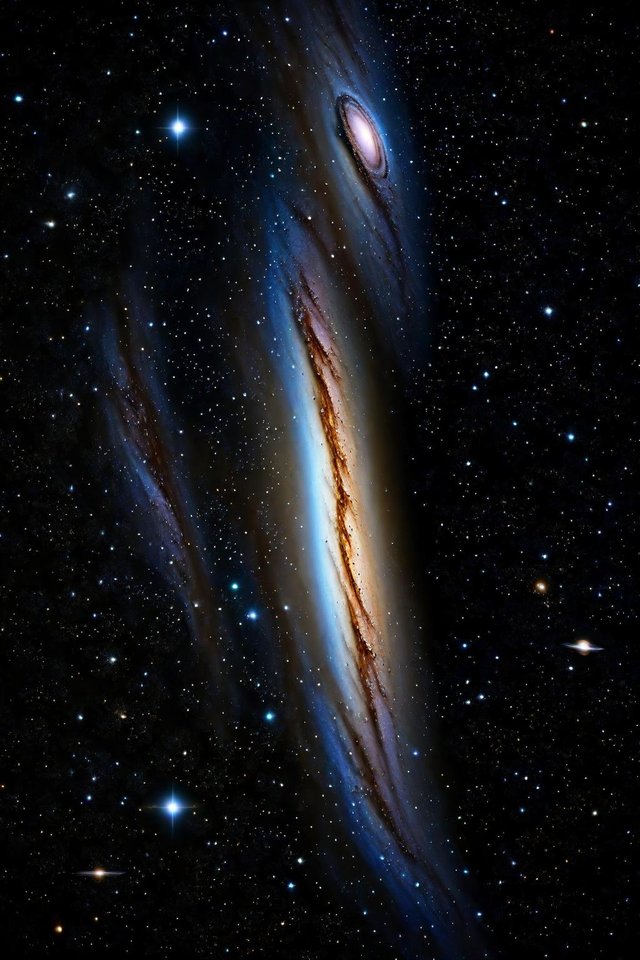
The Andromeda Galaxy, also known as M31, is a fascinating cosmic entity located about 2.537 million light-years away from Earth. It is the closest spiral galaxy to our Milky Way and is named after the constellation Andromeda, where it appears in the night sky. Here are some key points that could be included in an article about the Andromeda Galaxy:
Discovery and Observation: The Andromeda Galaxy has been observed and documented since ancient times. However, its true nature as a separate galaxy was not understood until the 20th century.
Characteristics: Andromeda is a massive galaxy, much larger than our Milky Way, with a diameter of approximately 220,000 light-years. It contains around one trillion stars, compared to the Milky Way's estimated 100 to 400 billion stars.
Structure: Like the Milky Way, Andromeda is a spiral galaxy with a central bulge and spiral arms. It also has a supermassive black hole at its center, which plays a crucial role in shaping its structure and dynamics.
Interaction with the Milky Way: One of the most intriguing aspects of Andromeda is its eventual collision course with the Milky Way. Current astronomical models suggest that the two galaxies will collide in about 4.5 billion years, leading to the formation of a new galaxy often referred to as Milkomeda or Milkdromeda.
Scientific Significance: Studying the Andromeda Galaxy provides valuable insights into galactic evolution, structure, and dynamics. It allows astronomers to test theories about galaxy formation, star formation, and the behavior of supermassive black holes.
Observational Tools: Astronomers use a variety of tools to study Andromeda, including ground-based telescopes, space telescopes like the Hubble Space Telescope, and advanced instruments capable of detecting different wavelengths of light, such as radio telescopes.
Future Missions: Several upcoming space missions, such as the James Webb Space Telescope (JWST), will further enhance our understanding of Andromeda and other distant galaxies. These missions will provide high-resolution images and detailed data about galactic structures, star formation, and more.
By delving into these aspects, an article about the Andromeda Galaxy can offer readers a comprehensive overview of this majestic cosmic neighbor and its significance in the study of the universe.